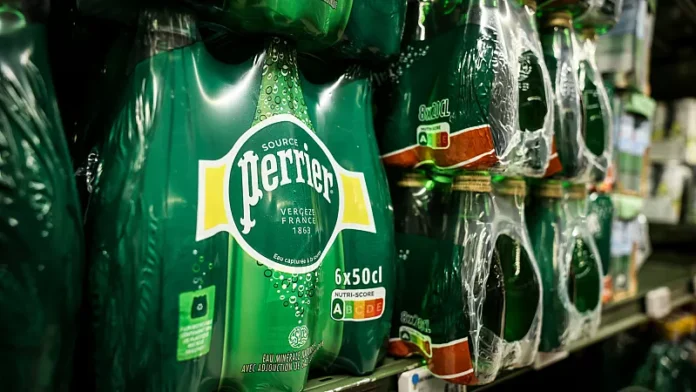
The French Senate has accused the government of President Emmanuel Macron of covering up illegal practices by Swiss food giant Nestlé, including the use of banned treatments on some of the country’s most popular mineral water brands such as Perrier, Vittel, Contrex, and Hépar.
In a damning report released this week, a Senate inquiry commission concluded that Nestlé engaged in the unauthorized treatment of spring and mineral water for years to prevent bacterial and chemical contamination—practices explicitly prohibited under both French and European Union regulations.
The report also charges the French government with deliberate concealment of these practices since at least 2021.“In addition to Nestlé Waters’ lack of transparency, the French government’s lack of transparency must also be highlighted,” the report stated.
It accused authorities of agreeing to a backdoor plan by Nestlé to switch to microfiltration after a closed-door government meeting in October 2021, rather than taking immediate legal action.
The inquiry, which interviewed more than 120 individuals including Nestlé’s CEO and senior executives, found that the presidency had known about the violations as early as 2022. Yet, President Macron publicly denied any involvement earlier this year, stating in February, “I was not aware of these things. There is no collusion with anyone.”
Nestlé, which has not yet responded to the report’s latest allegations, had previously acknowledged the use of prohibited treatments and last year agreed to pay a €2 million fine to avoid legal proceedings.
The Senate commission’s rapporteur, Alexandre Ouizille, revealed that France’s fraud control agency estimates the total fraud to be worth more than €3 billion—mainly from selling “natural” mineral water at prices hundreds of times higher than tap water.
Ouizille also described how investigators visiting one of Nestlé’s plants in southern France discovered sliding cabinets that concealed areas where the illegal treatments were carried out.
The report cited Nestlé’s defense that without such treatments, contamination from harmful bacteria such as E. coli would force several bottling facilities to close, risking significant job losses.
While there have been no confirmed health consequences linked to the consumption of the treated water, the Senate commission emphasized the deception of millions of consumers who trusted the purity of bottled mineral water. “Consumers were misled—plain and simple,” said Ouizille.
Laurent Burgoa, the commission’s president, acknowledged the absence of proven health harm but emphasized that the issue revolves around transparency, legality, and consumer rights. “Whether or not people were harmed, the fact remains that the rules were broken and the truth was hidden,” he said.
As the scandal unfolds, public trust in both regulatory bodies and major food companies is being put to the test.
The government and Nestlé may face further scrutiny in the coming weeks, with legal experts warning that the case could lead to wider investigations into industry oversight and environmental regulation compliance.
This article was created using automation technology and was thoroughly edited and fact-checked by one of our editorial staff members